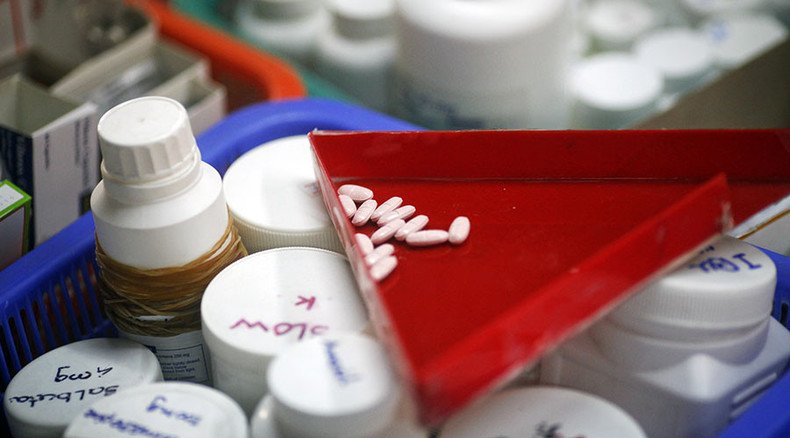Company that hiked AIDS drug price by 5,000% now targeted by antitrust probe

Turing Pharmaceuticals, the company that increased the price of a drug used by AIDS and cancer patients by more than fifty times, is now facing an antitrust probe by the New York state attorney general.
Upon acquiring Daraprim, a 62-year-old drug no longer under patent protection, Turing raised the price from $13.50 a pill all the way up to $750, leading to widespread outrage and igniting a debate about pharmaceutical industry practices.
READ MORE: CEO who jacked up price of AIDS pill to $750 faces major backlash
The office of the Attorney General of New York, Eric Schneiderman, wrote to Turing Pharmaceuticals CEO Martin Shkreli on Monday, inquiring about concerns that the company might be trying to prevent generic versions of Daraprim from being produced. The antitrust office is concerned that Turing may have restricted distribution of the drug specifically so that generic drug manufacturers couldn't get the samples they need to create their own version.
Companies that make generics need the name-brand versions for testing purposes, to prove that the drug they manufacture is pharmaceutically equivalent and can be substituted in treatment.
"While competition might ordinarily be expected to deter such a massive price increase, it appears that Turing may have taken steps to prevent that competition from arising," said the letter, a copy of which was obtained by the New York Times.
New York Attorney General Examining Whether Turing Restricted Drug Access http://t.co/DYpSZjem21. #pharma#antitrust#patents#turing
— Chris Neumeyer (@Chris_Neumeyer) October 13, 2015Shkreli, 32, openly talked about using the restricted distribution tactic at his previous company, Retrophin, which was also known for acquiring older drugs and raising their price. The move to restrict Daraprim occurred in June, before Turing acquired the rights to the drug, but might have been a prerequisite of the sale, according to the New York Times.
Schneiderman’s letter informed Shkreli that he is required to retain all documents that could be relevant to the investigation.
The main use of Daraprim and its generic equivalent is to treat life-threatening parasitic infections that sometimes result as the complications of AIDS and cancer. The existence of generic versions of a drug generally forces companies to keep prices low due to competition. Turing Pharmaceuticals maintains that despite that enormous price increase, more than half of its Daraprim sales have been discounts as low as $1 a bottle.












